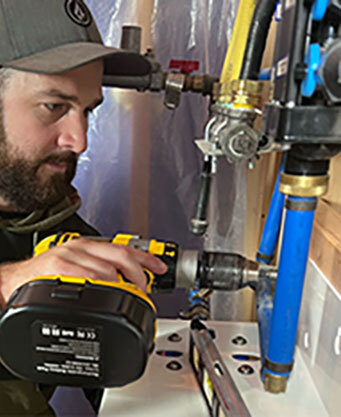
Steps to Take When You Find Your Water Heater Leaking
23rd Jun 2023
We’ve all been there — you wake up to water pooled at your feet only to discover it’s coming from your water heater. Discovering a leaking water heater can be a cause for concern, as it can lead to water damage, increased utility bills, and potentially costly repairs. Knowing the right steps to take when you find your water heater leaking is crucial to minimize the damage and ensure the safety of your home. In this blog post, our team at NuvoH2O will guide you through four essential steps to address a leaking water heater. Additionally, we will explore how installing a water softener can help prevent leaks and extend the lifespan of your water heater.
Our team specializes in home water softeners for your unique needs. We’ll discuss the advantages of our salt-free water softener systems, which are designed to reduce hard water buildup and ultimately help prevent leaks. Get more information and contact our team to find the right water softener for your home today!
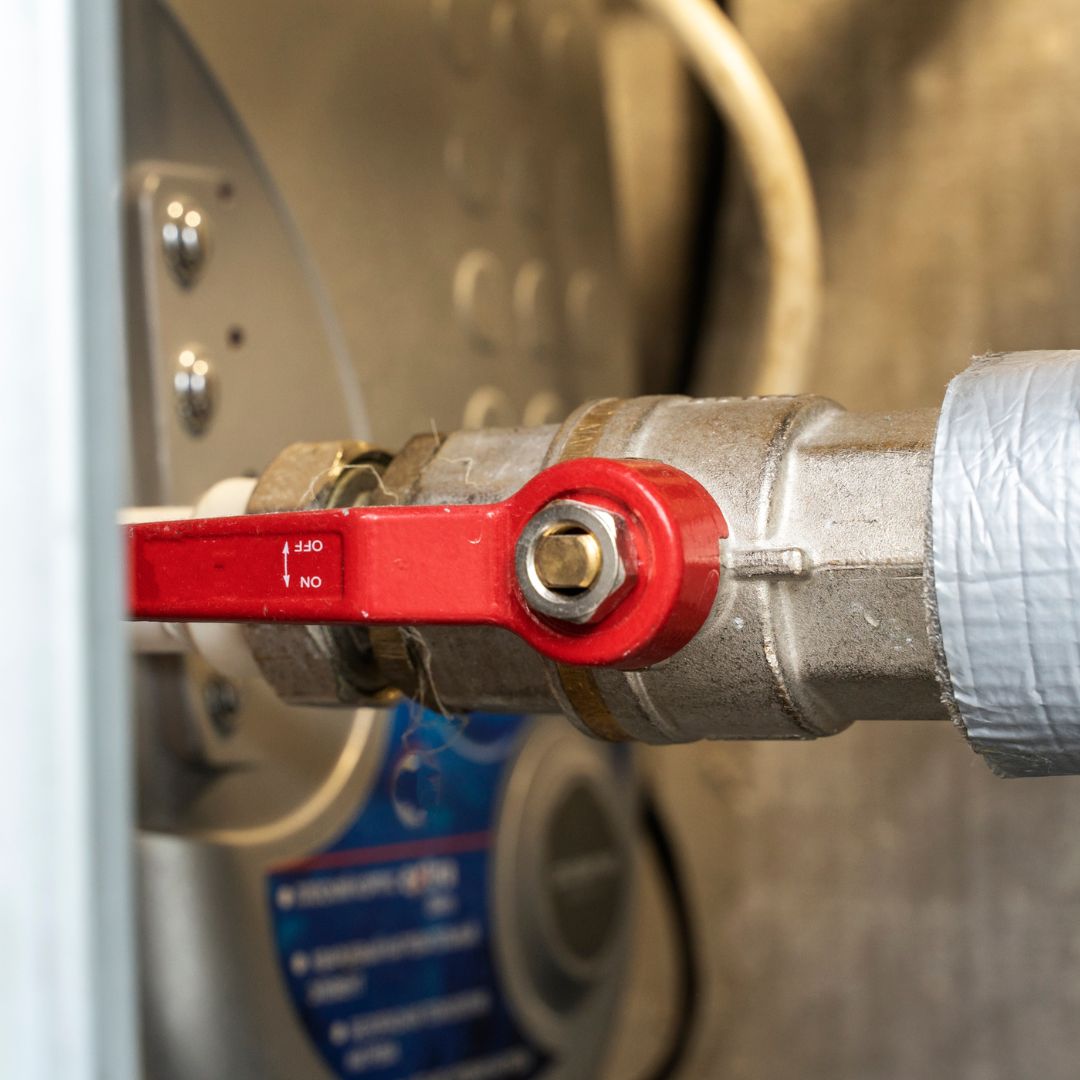
Shut Off the Power and Water Supply
The moment you notice a leak from your water heater, your first step should be to turn off the power supply. Locate the circuit breaker for the water heater and switch it off to avoid any electrical hazards. Next, shut off the water supply to the heater. Locate the cold water supply valve and turn it off by rotating it clockwise. These initial steps will prevent further water damage and ensure your safety.
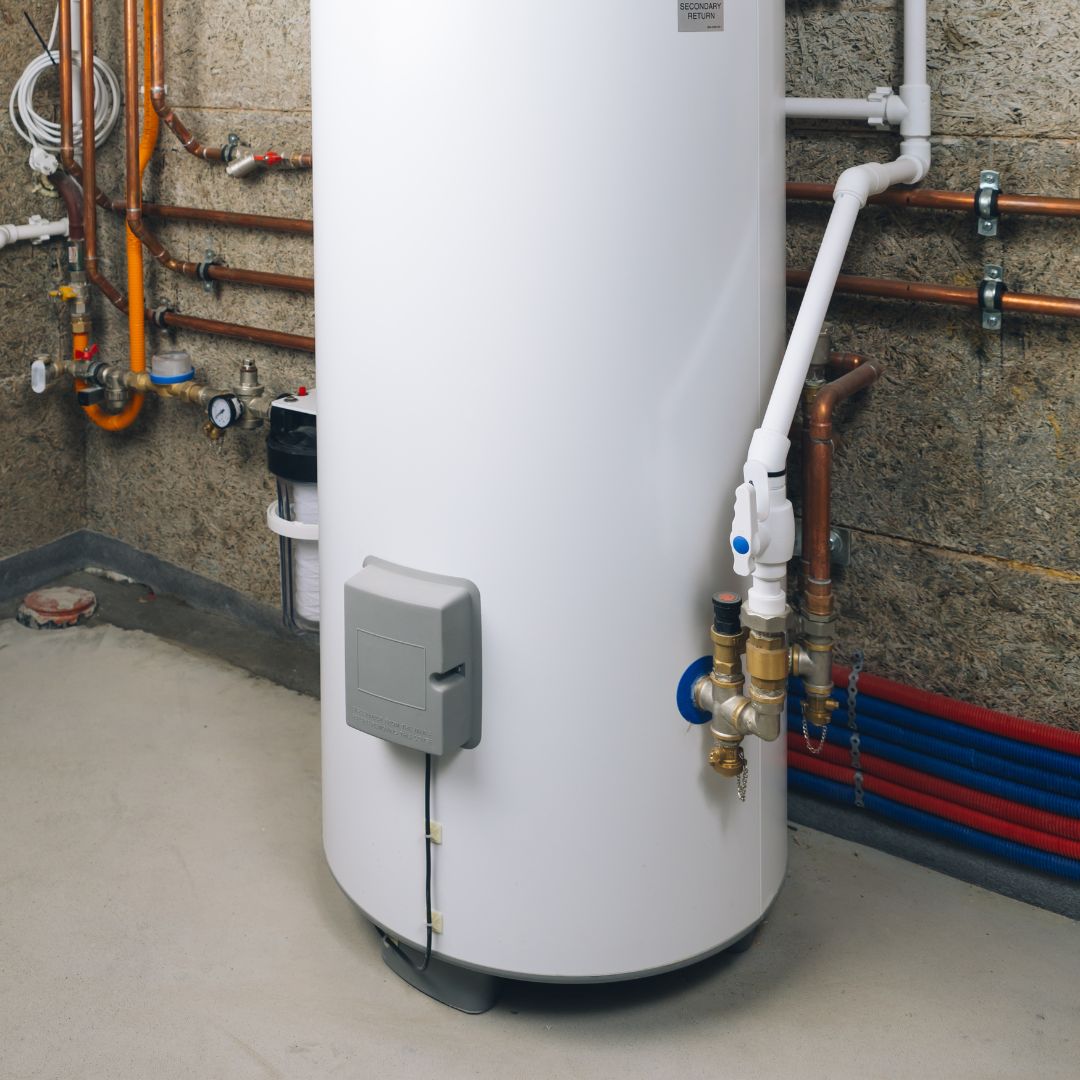
Assess the Leak
After safely shutting off the power and water supply, assess the leak to determine its severity. Check for any visible cracks, loose connections, or faulty valves. If the leak is minor, you may be able to tighten a loose connection or replace a faulty valve yourself. However, if the leak is significant or you are unsure about the cause, it's best to call a professional plumber to evaluate and repair the water heater.
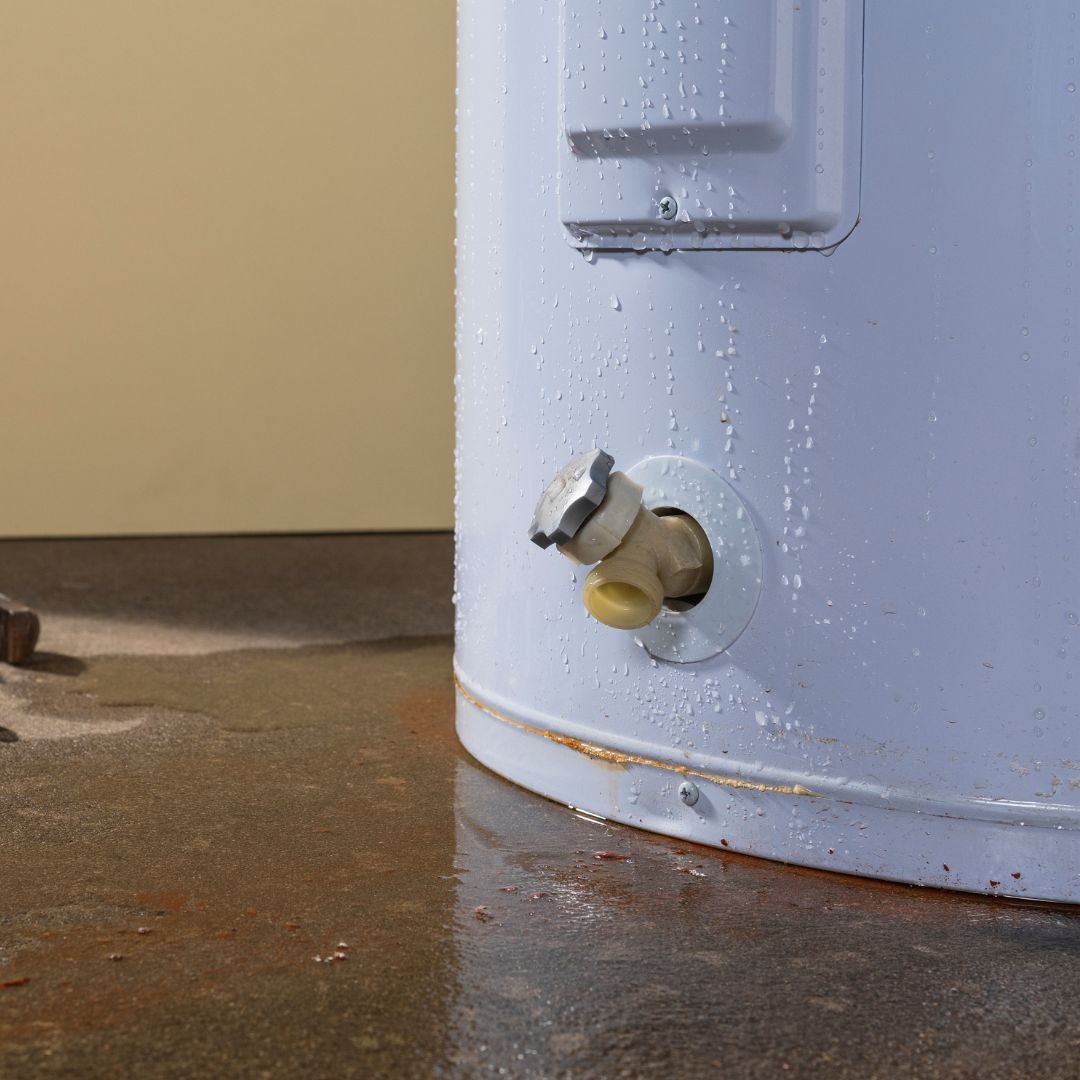
Drain the Tank
Before attempting any repairs or contacting a professional, it is advisable to drain the water heater tank to minimize any potential water damage. Connect a hose to the drain valve located at the bottom of the tank and direct it towards a floor drain or outside. Open the drain valve and allow the water to flow out. Be cautious as the water may be hot. Once the tank is drained, you can proceed with repairs or wait for the plumber's arrival.
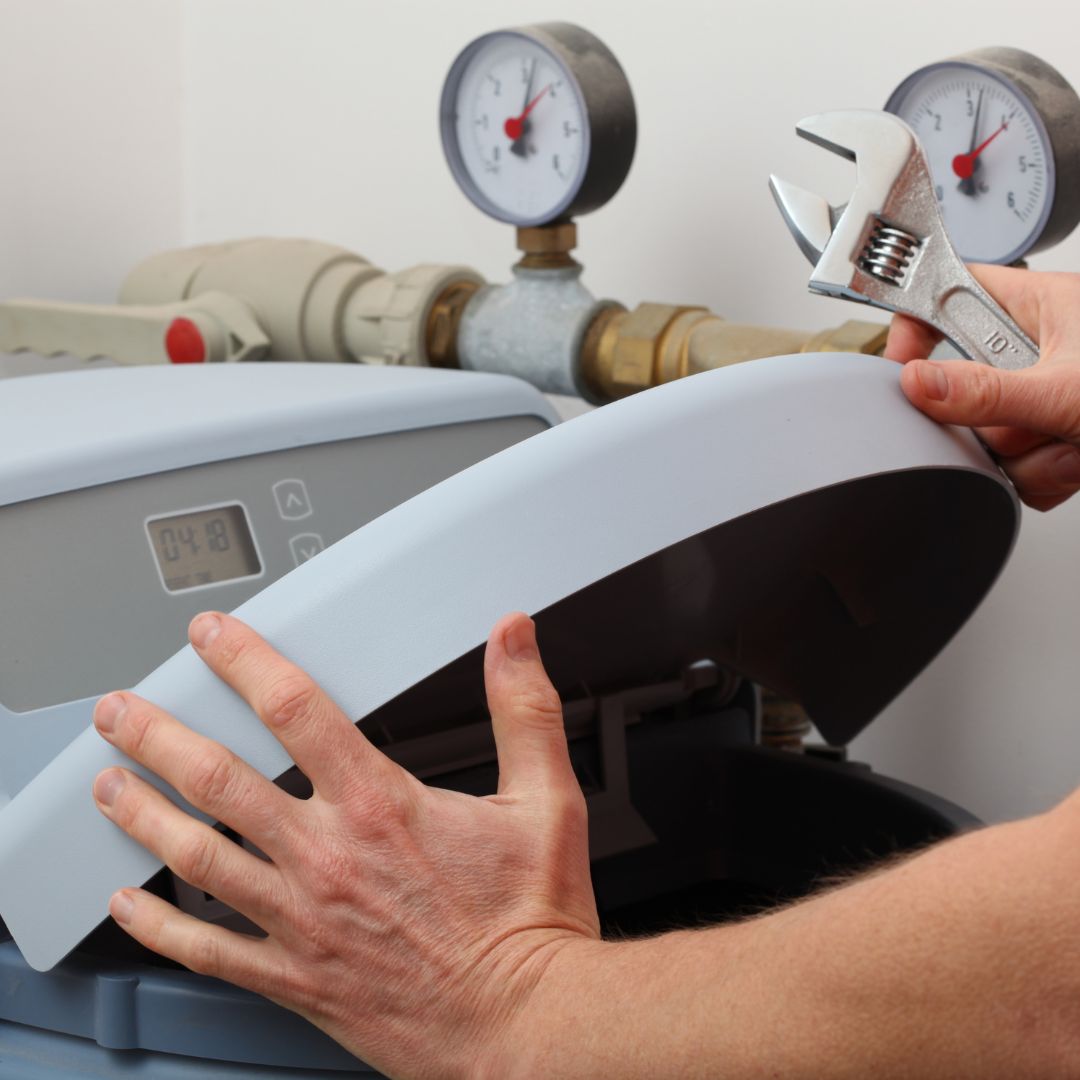
Consider Installing a Water Softener
Water heaters are prone to leaks and corrosion due to the presence of hard water. Hard water contains high levels of minerals like calcium and magnesium, which can accumulate inside the water heater tank and cause damage over time. Installing a water softener system can prevent buildup, extend the lifespan of your water heater, and reduce the likelihood of leaks. A water softener binds to the minerals responsible for hard water and provides you with soft, treated water that is gentler on your appliances.
Discovering a leaking water heater can be alarming, but following the right steps can help you manage the situation effectively. Furthermore, consider installing a water softener system to prevent water scale buildup, extend the lifespan of your water heater, and reduce the likelihood of leaks caused by hard water. By taking these steps, you can protect your home from water damage, save on repair costs, and enjoy the benefits of a well-functioning water heating system. Get in touch with our experienced team at NuvoH2O today to find the right water softener for your home!




